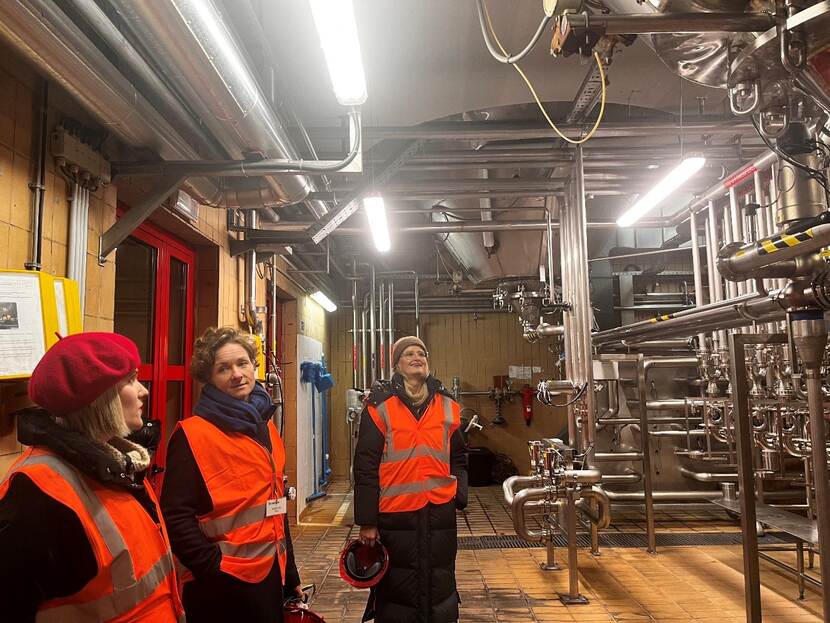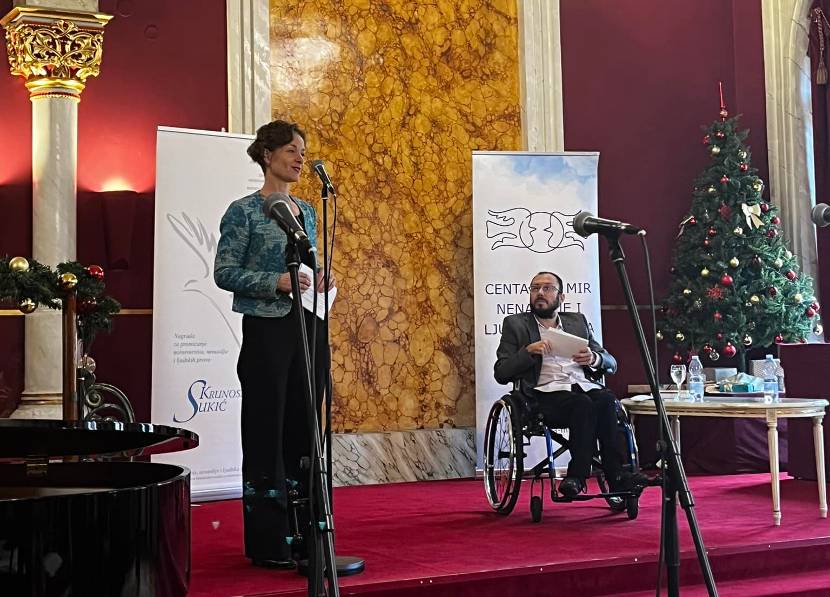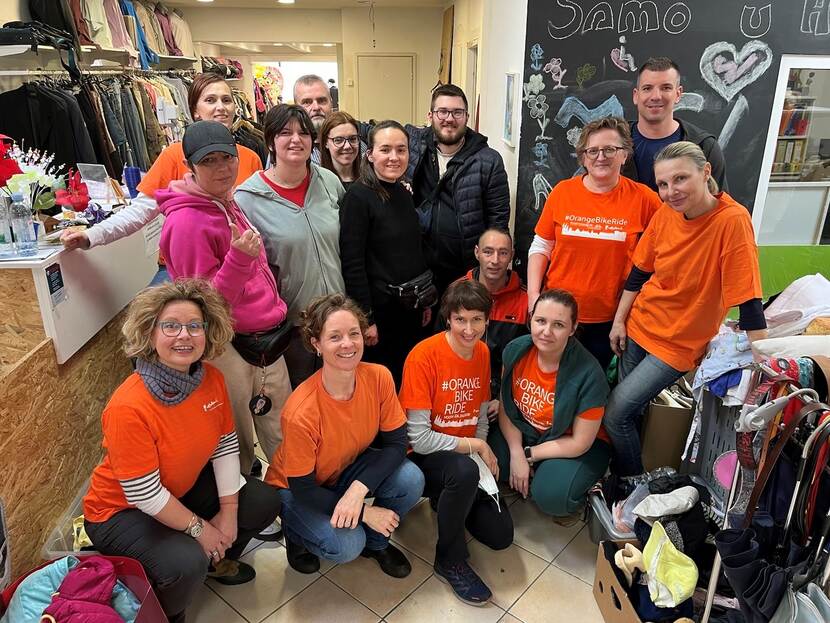The Netherlands and Croatia explore new opportunities together
Weblogs
Croatia already makes considerable use of some natural sources of energy like solar power, but it also has major potential for others, including geothermal heat, wind energy and hydrogen. There are plenty of opportunities for the Netherlands and Croatia when it comes to bilateral cooperation, investment and knowledge sharing concerning the energy transition. Our ambassador to Croatia, Charlotte van Baak, is looking forward to exploring them all in the coming years.
What’s it like being the ambassador to Croatia?
‘I arrived here last summer for my first ambassadorial posting. So far, my experience has been overwhelmingly positive. Croatia is beautiful, of course, and the nature here is breathtaking. The people of Croatia are hospitable, the food is delicious and the country is very safe. So it was also easy for my family to settle in quickly and feel welcome. This is a very important region for Europe, with history everywhere you turn and development in full swing. Luckily for me I’ve come to an embassy staffed by people with plenty of knowledge and experience, and there’s already a strong network in place. That makes my work so much easier.
I was really pleasantly surprised by how open and accessible the Croatian people are. It’s so easy to get talking with people from all kinds of sectors. I’m impressed by their professionalism, and their willingness to talk things over and share insights. Best of all is that we can look for new ways of teaming up and learning from each other. So it’s great to be working in an environment like this!’
What are the main themes that the Netherlands and Croatia collaborate on?
‘The energy transition, for one thing. A few years ago our embassy commissioned a major survey to explore the market for green energy here. We learned that there are still lots of opportunities here for Dutch companies. Croatia has its own natural sources of energy, such as solar power, but there’s also huge potential for others, such as geothermal heat, wind energy and hydrogen. The Netherlands has less sun – and less space – but we do have plenty of expertise, and lots of businesses that are working in this field.
With Croatia now in the Schengen area as well as the EU, it’s much easier for companies to do business here. With that in mind, last September we organised a trade mission so that Dutch companies specialising in solar power and bio-energy could get acquainted with the Croatian market. The foundations have now been laid, and there are even some initial agreements on commercial cooperation. Dutch companies were pleased and surprised by the opportunities they saw here. There’s plenty of scope for cooperation, investment and knowledge sharing.
‘The Netherlands and Croatia are partners in the EU and NATO, and we’re strengthening our political ties too. A good example of this was Prime Minister Mark Rutte’s meeting with Croatia’s Prime Minister Andrej Plenković in Zagreb back in January. One of the topics they discussed was how our two countries can step up their cooperation further.’
What do people in Croatia think about the war in Ukraine?
‘Croatia and the Netherlands are in complete agreement that ongoing support for Ukraine is vital. Both our countries are working hard to ensure Russia is held accountable for its crimes against Ukraine and the Ukrainian people. And we’re providing support in the form of arms and ammunition, for example.
Croatia itself experienced war and occupation in the 1990s, and so it feels a strong sense of solidarity with Ukraine. An unfortunate legacy of that war is Croatia’s extensive experience of clearing mines. The country has a whole system in place for that and it is sharing this knowledge and expertise with Ukraine. This is crucial with a view to Ukraine’s reconstruction. Last year Croatia hosted an international conference on humanitarian demining for Ukraine, which was intended to encourage other countries to share their own expertise and make funds available.
People who have experienced war are more at risk of developing mental health problems such as depression, anxiety disorders and post-traumatic stress disorder (PTSD). Croatia is helping Ukrainian veterans with their psychological and physical recovery, again by drawing on its own experience. It’s a great way of showing that they stand united with the people of Ukraine.’
What do you hope to accomplish during your time as ambassador to Croatia?
‘I would like to see Dutch companies finding their way to Croatia, particularly those working on green energy. But also those active in areas such as agriculture, the circular economy and green transport.
At the embassy we’re also doing our best to make our working methods more sustainable, greener and more inclusive. For example by switching to vegetarian working lunches, and by participating in the Dutch volunteer event NLdoet last March. During this year’s King’s Day celebrations we’ll be giving a platform to an organisation that focuses on upcycling used clothes and providing jobs for people with disabilities. These may be small steps, but together they’re leading to positive change.
Another major theme we work on is BZ’s feminist foreign policy. For years, we’ve been collaborating with people and organisations that champion the rights of women and LGBTIQ+ people. And like everywhere else, in Croatia this work remains as important as ever. In the short time I’ve been here I’ve also met a lot of people whose work would inspire people in the Netherlands. I find it very interesting, for example, that here women are much better represented in the sciences – mathematics, chemistry and physics – compared to the Netherlands. If we’re going to make good progress on the green transition then we have to ensure that women can make their mark in these sectors.
I hope that the work I do with the embassy team in Zagreb will help our countries get even better acquainted, because we have so much to offer each other.’


